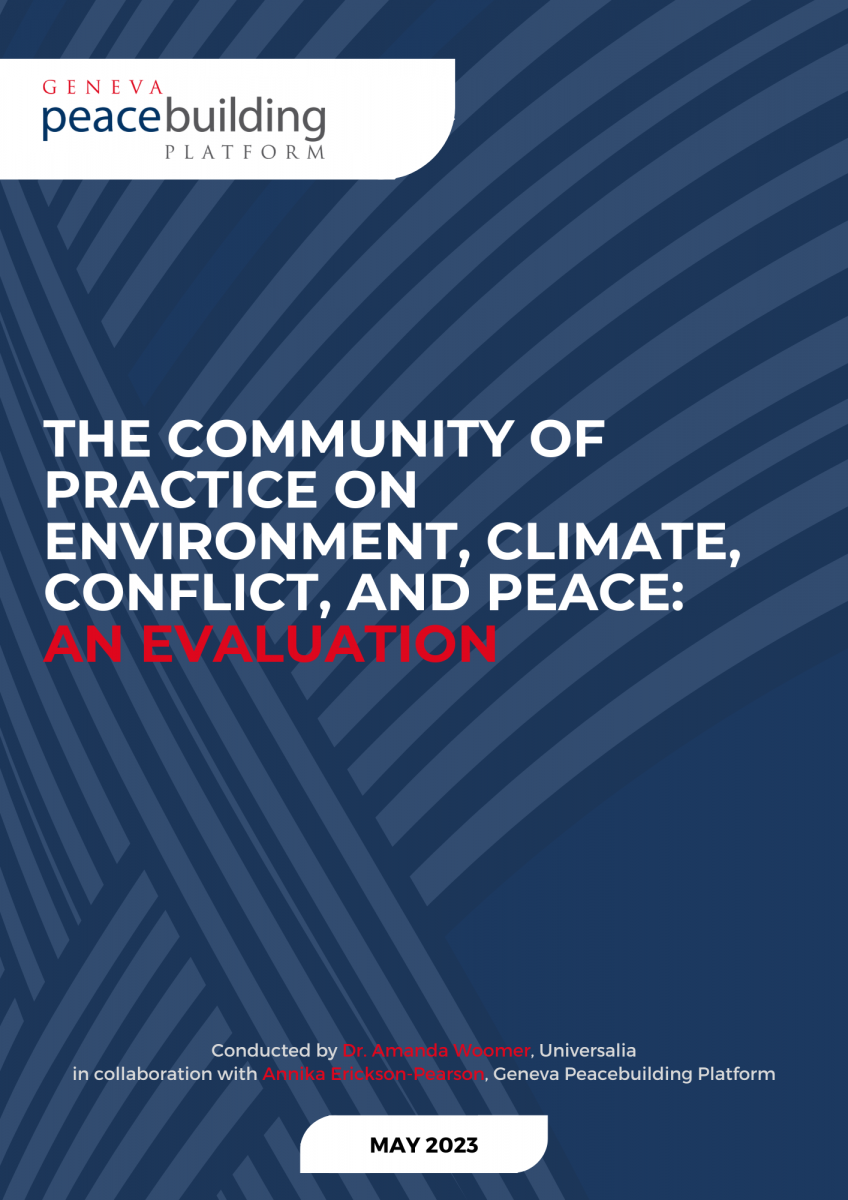PUBLICATION: The Community of Practice on Environment, Climate,
PUBLICATION: The Community of Practice on Environment, Climate,
The Environment, Climate, Conflict, and Peace (ECCP) is a community of practice (CoP or community) that aims to strengthen networking and community building on environmental peacebuilding, climate security, and other related topics through collaboration, dialogue, and learning between institutions and individuals both in Geneva and around the globe.
The objectives of the ECCP CoP are:
- To foster inter-institutional collaboration and dialogue on ECCP topics and projects.
- To promote learning and innovation, recognizing that each actor has a unique angle to bring to the table.
- To harness the joint reach of all participants to mainstream ECCP into organizations and institutions.
This community of practice comprises more than 500 individuals from around the world, most representing different non-governmental organizations (NGOs), international organizations or United Nations (UN) agencies, and academic institutions and think tanks. Participants work in various fields related to peace, humanitarian response, the environment, conservation, the security sector, and more. The ECCP is a constellation of convenings and connections. There are monthly, community-wide meetings meant to create a platform for networking and relationship building. Additionally, there are three tracks through which participants can connect with like-minded individuals and institutions: policy, practice, and evidence. There is no formal “membership” within the community or each track, and participants do not need to choose participation in one over the others. Rather, the tracks provide a framework for organizing information in a way that does not “re-silo” the community back into focus topics.
The community was created in early 2020 and is managed by the Geneva Peacebuilding Platform, as a part of its workstream on community management. Over the past three years, the community has grown from about 40 Geneva-based participants to over 500 participants around the world. Following the completion of its third year of work at the end of 2022, the ECCP CoP partnered with Universalia from January to April 2023 to conduct a collaborative and utilization-focused evaluation of the community. The evaluation explored questions related to the community’s relevance, coherence, efficiency, effectiveness, impact, and sustainability. Its methods included surveys, interviews, and document reviews.


 Geneva Peace Week
Geneva Peace Week